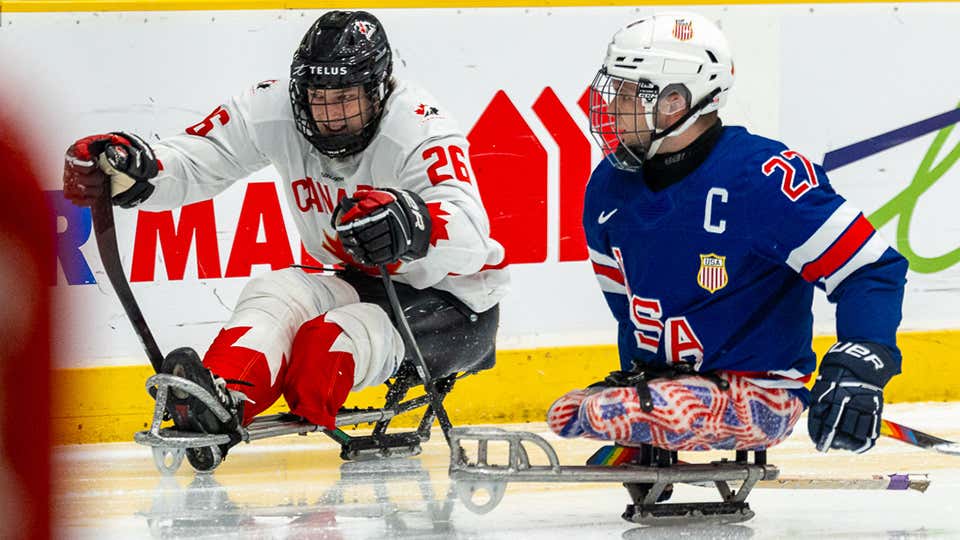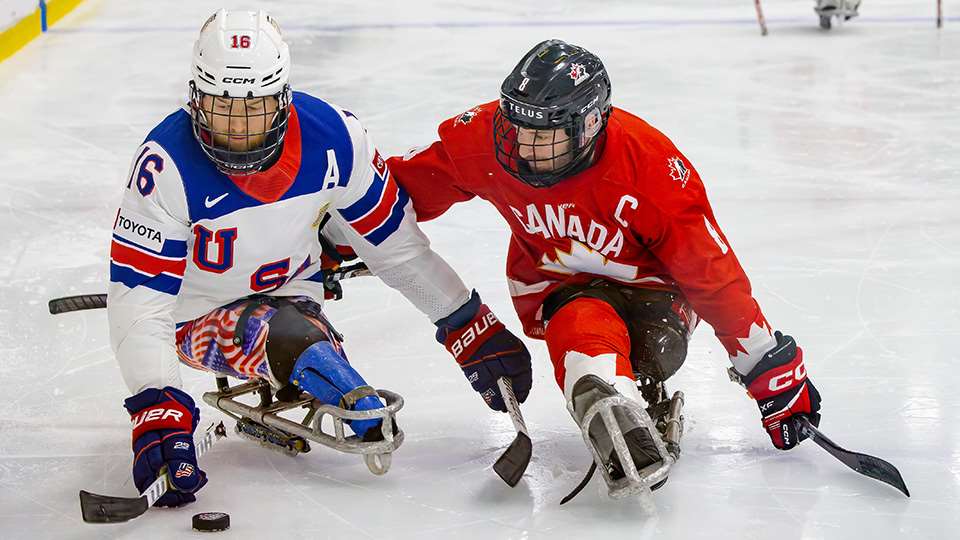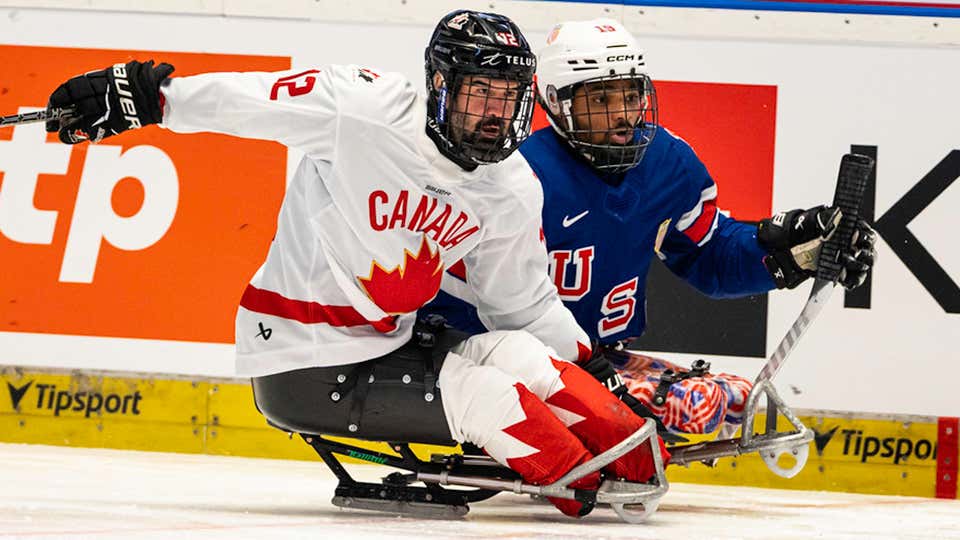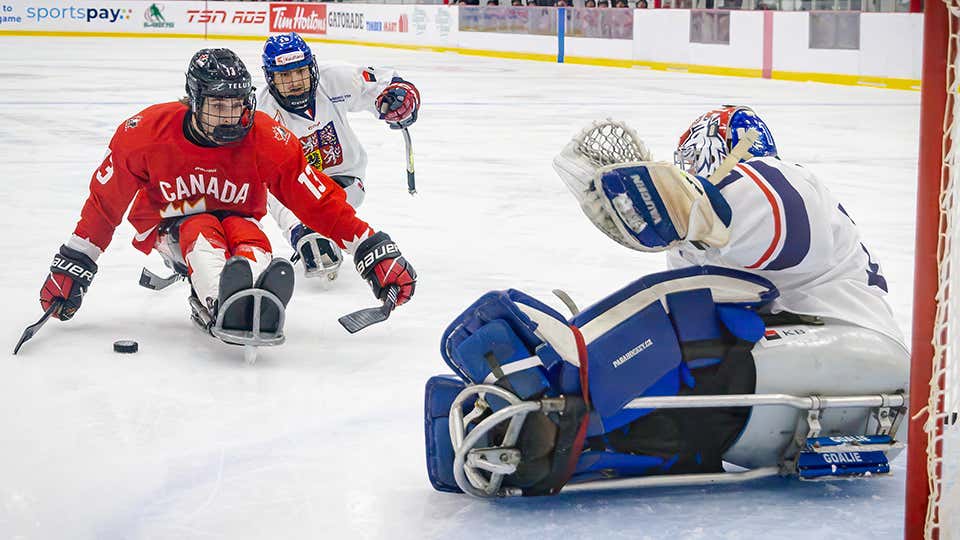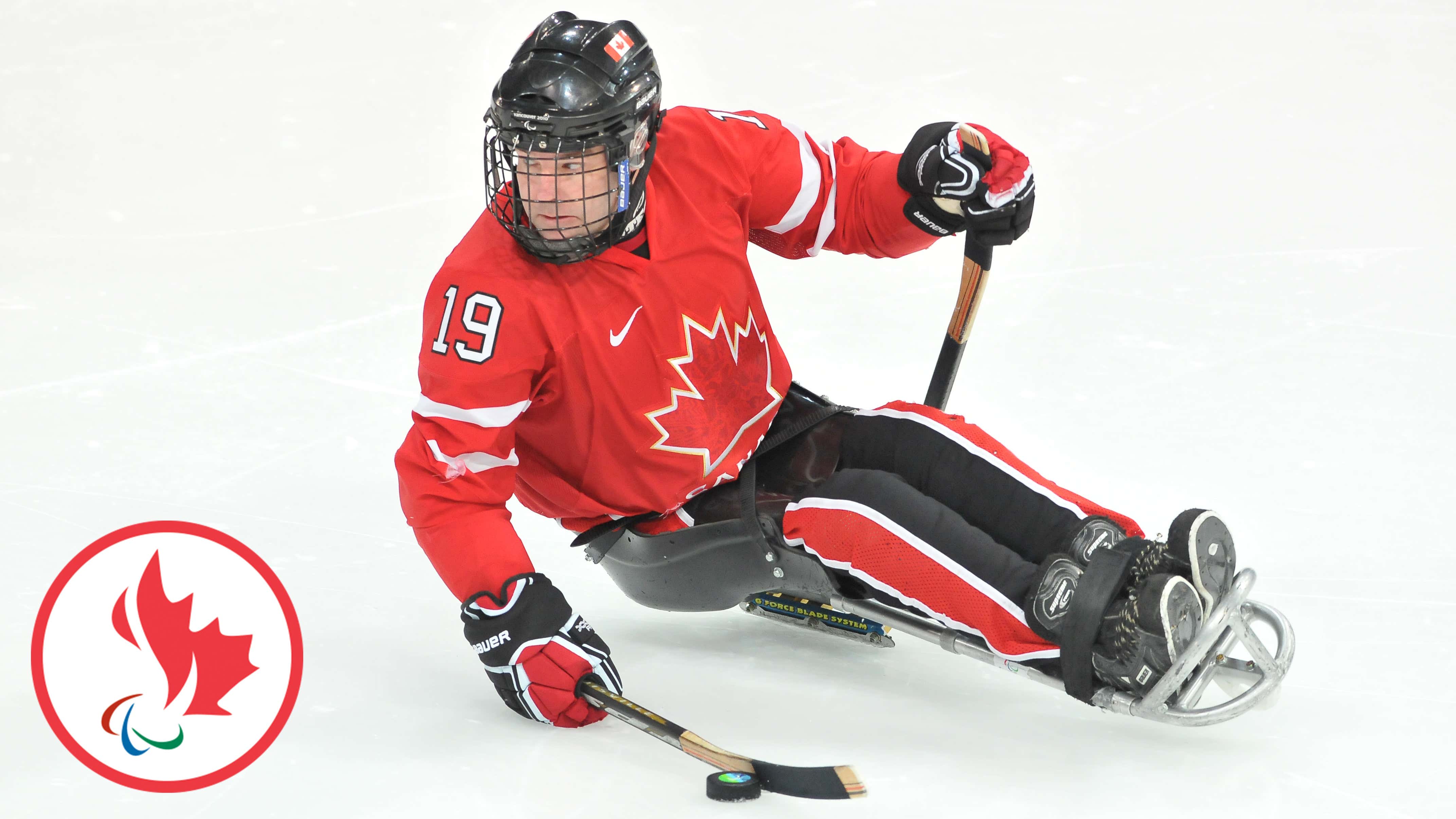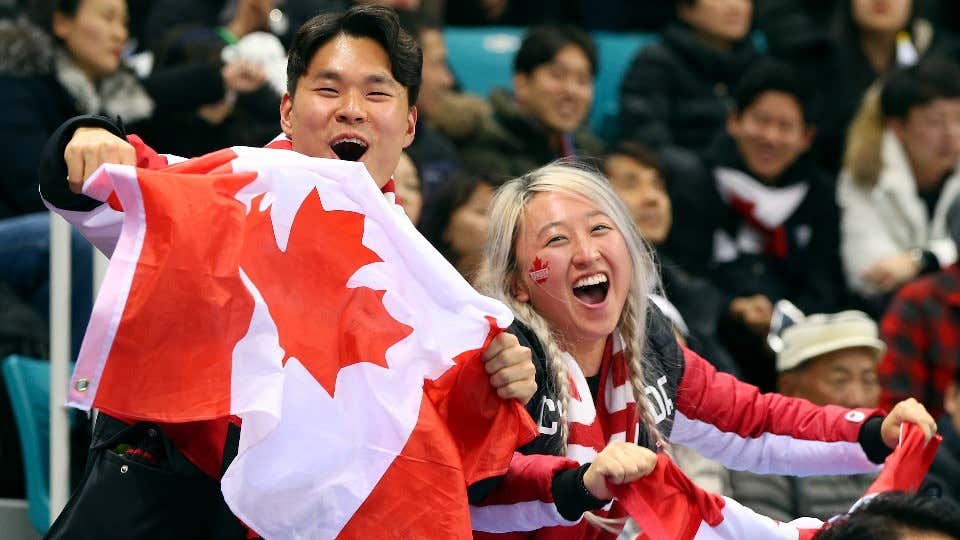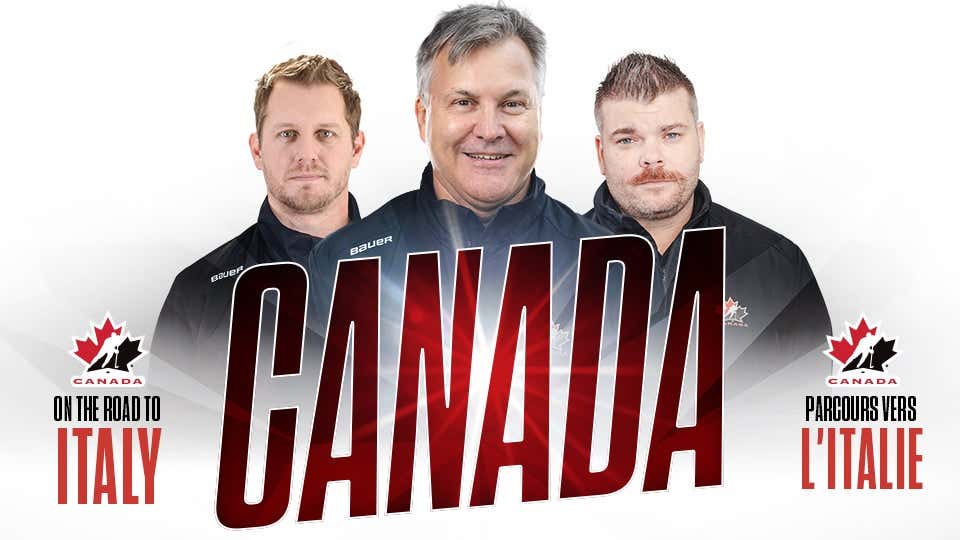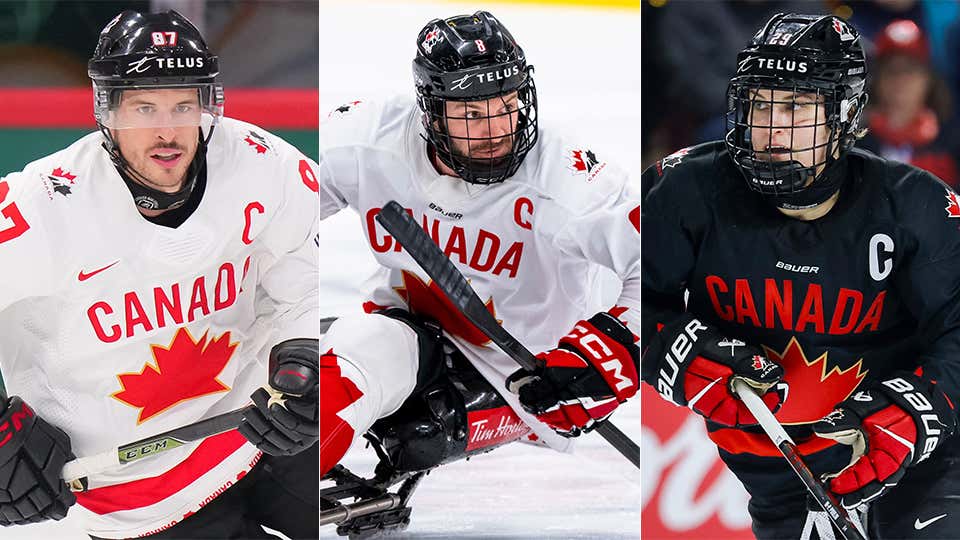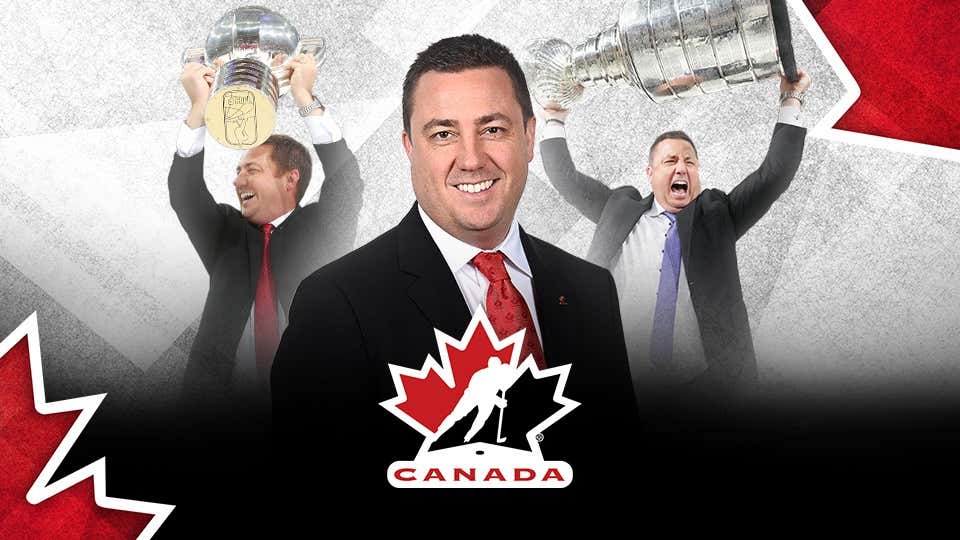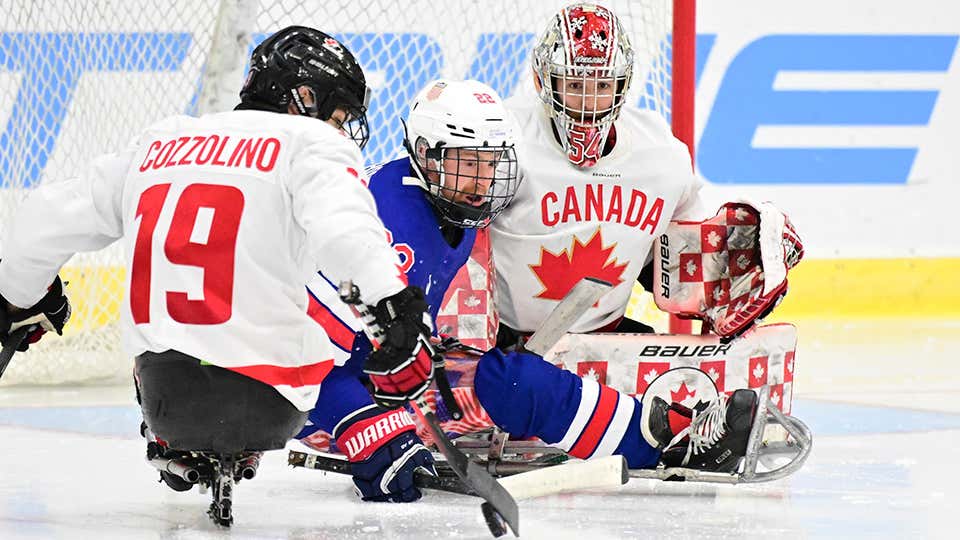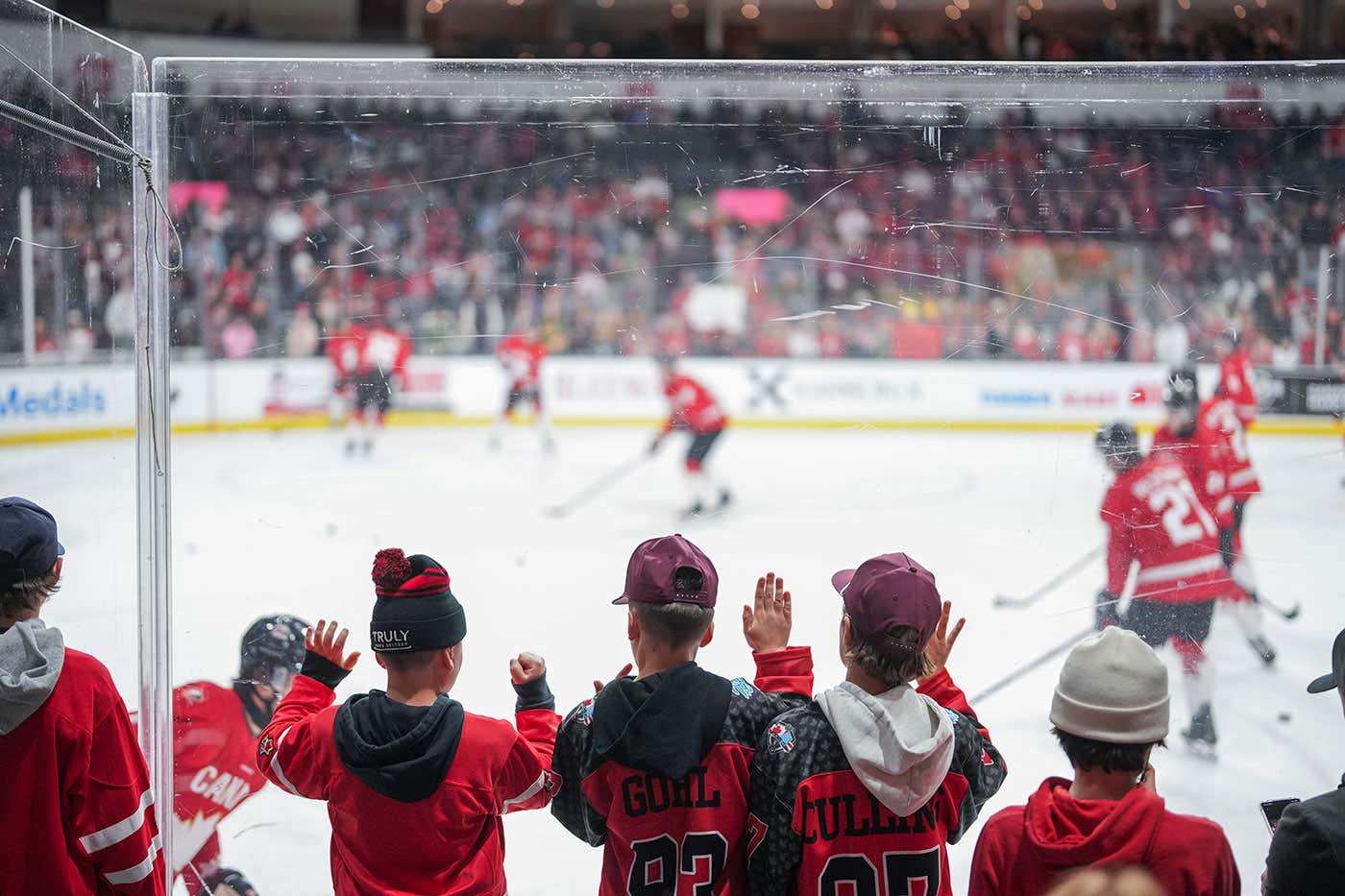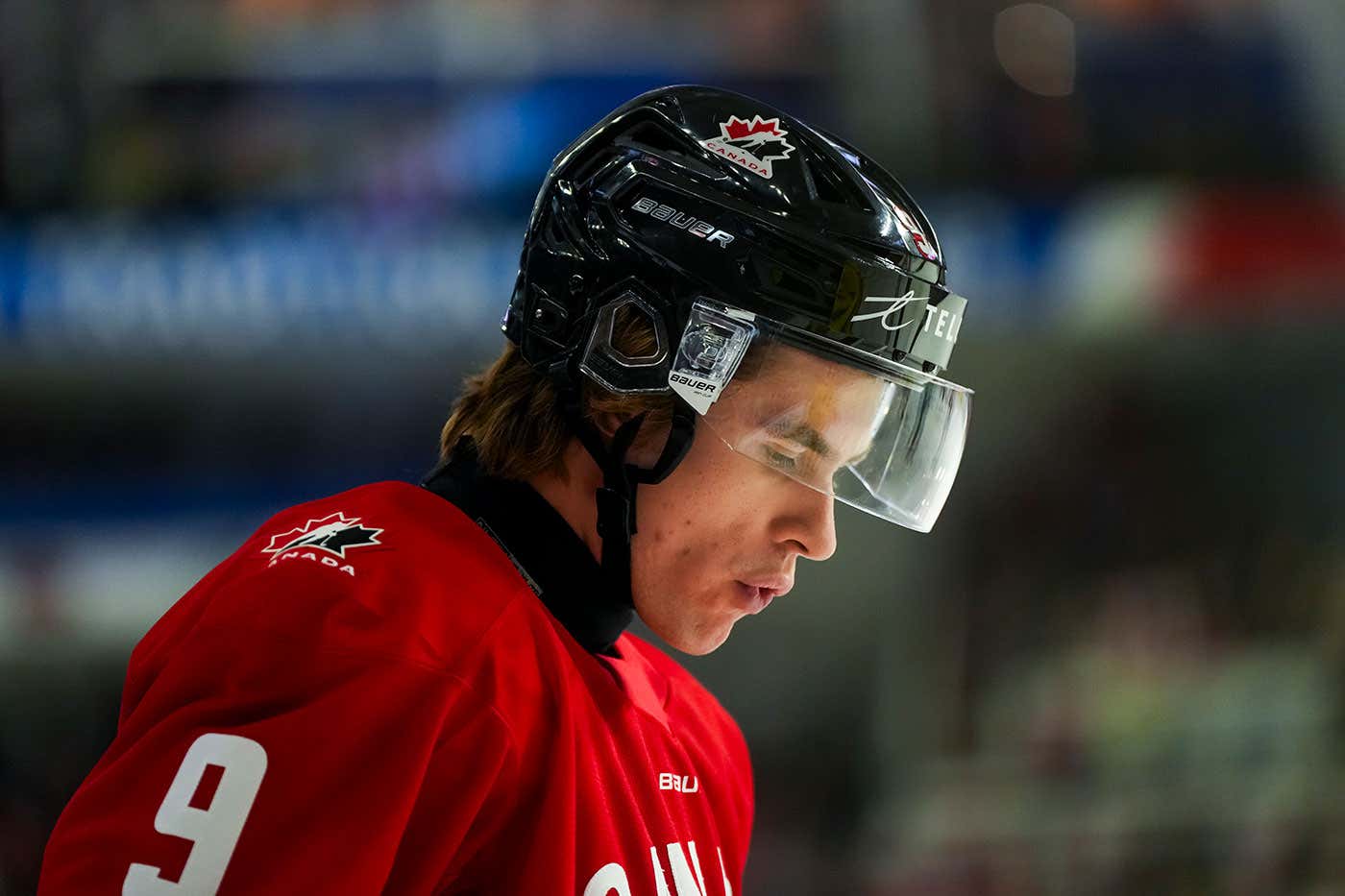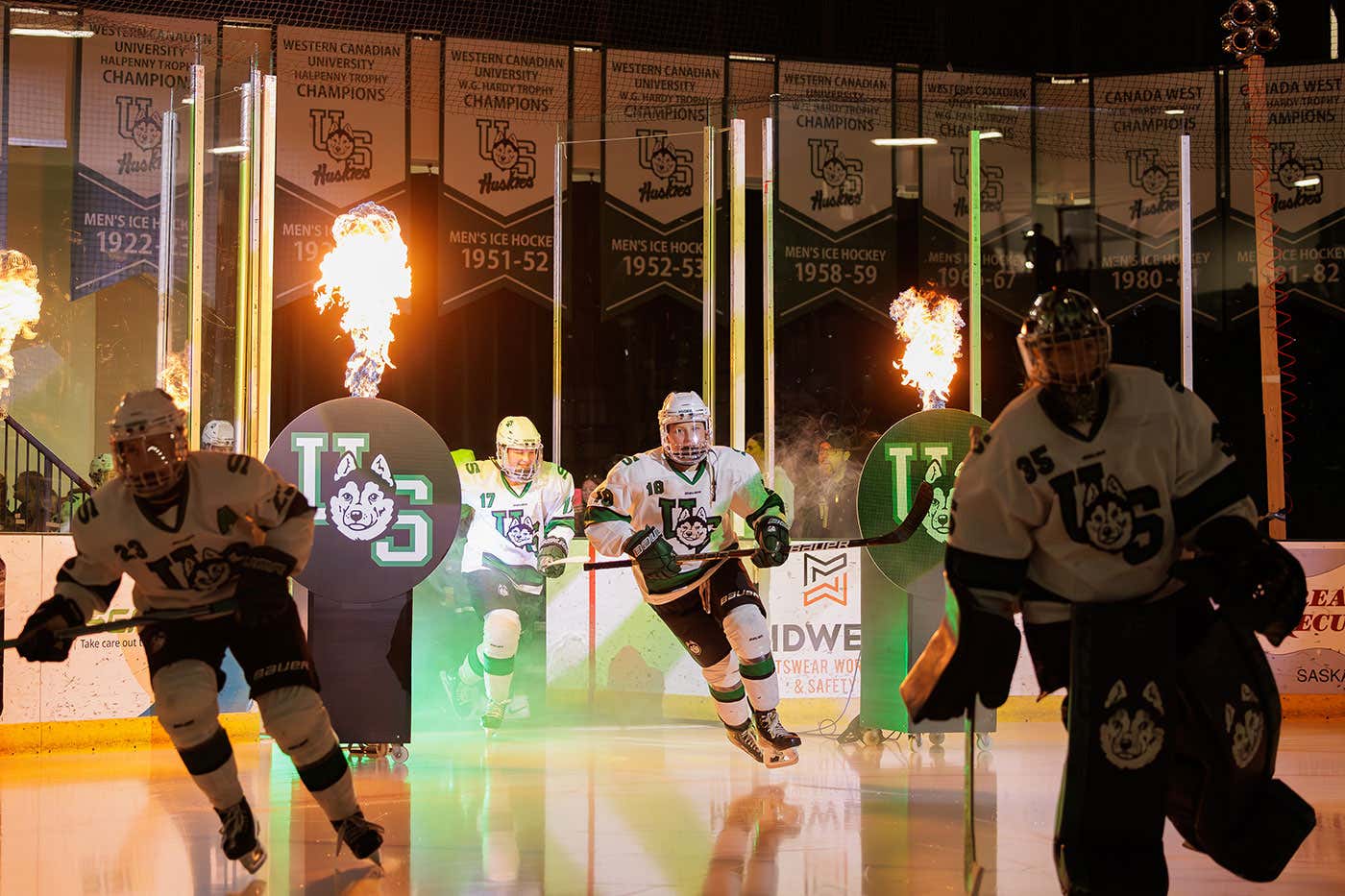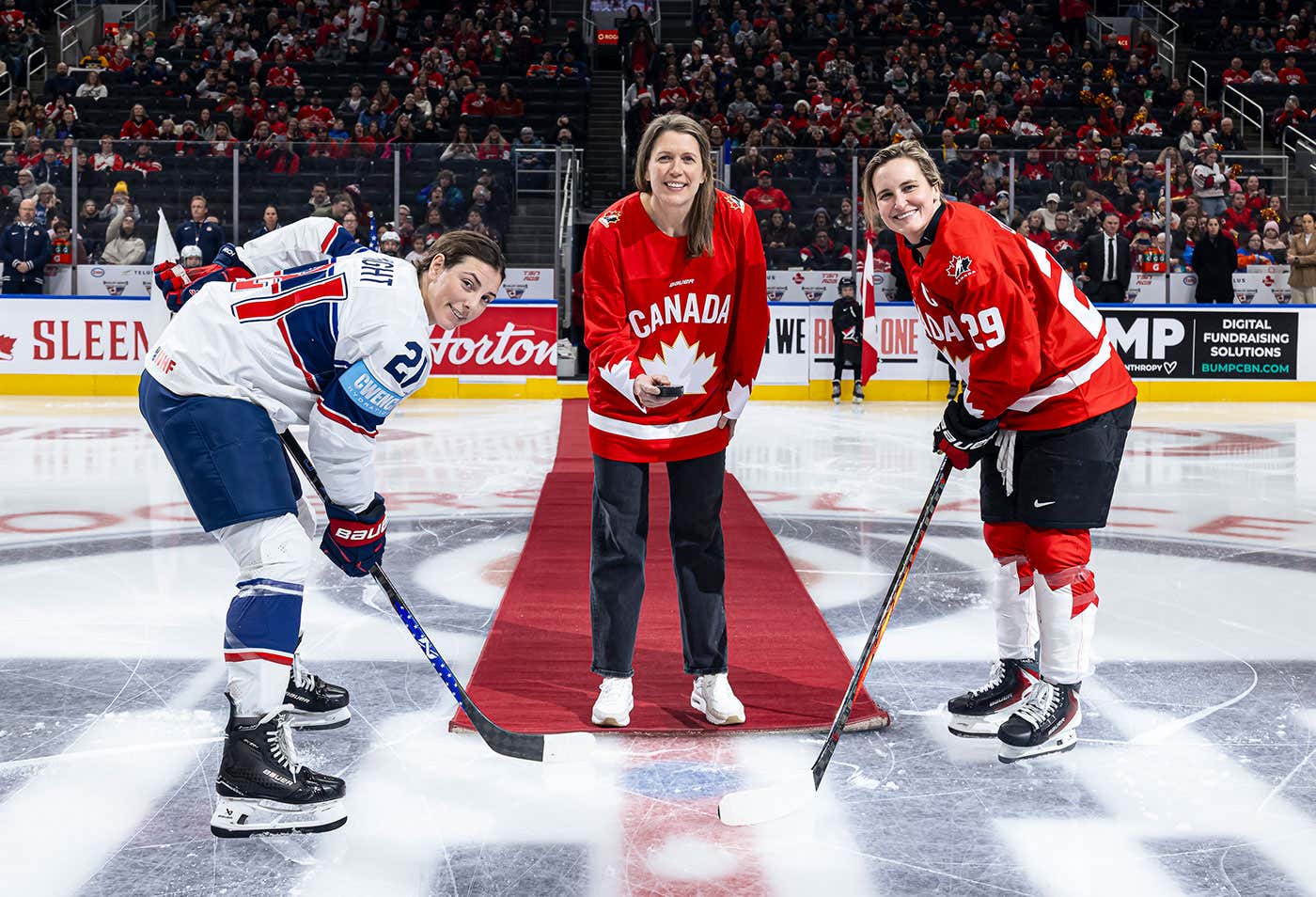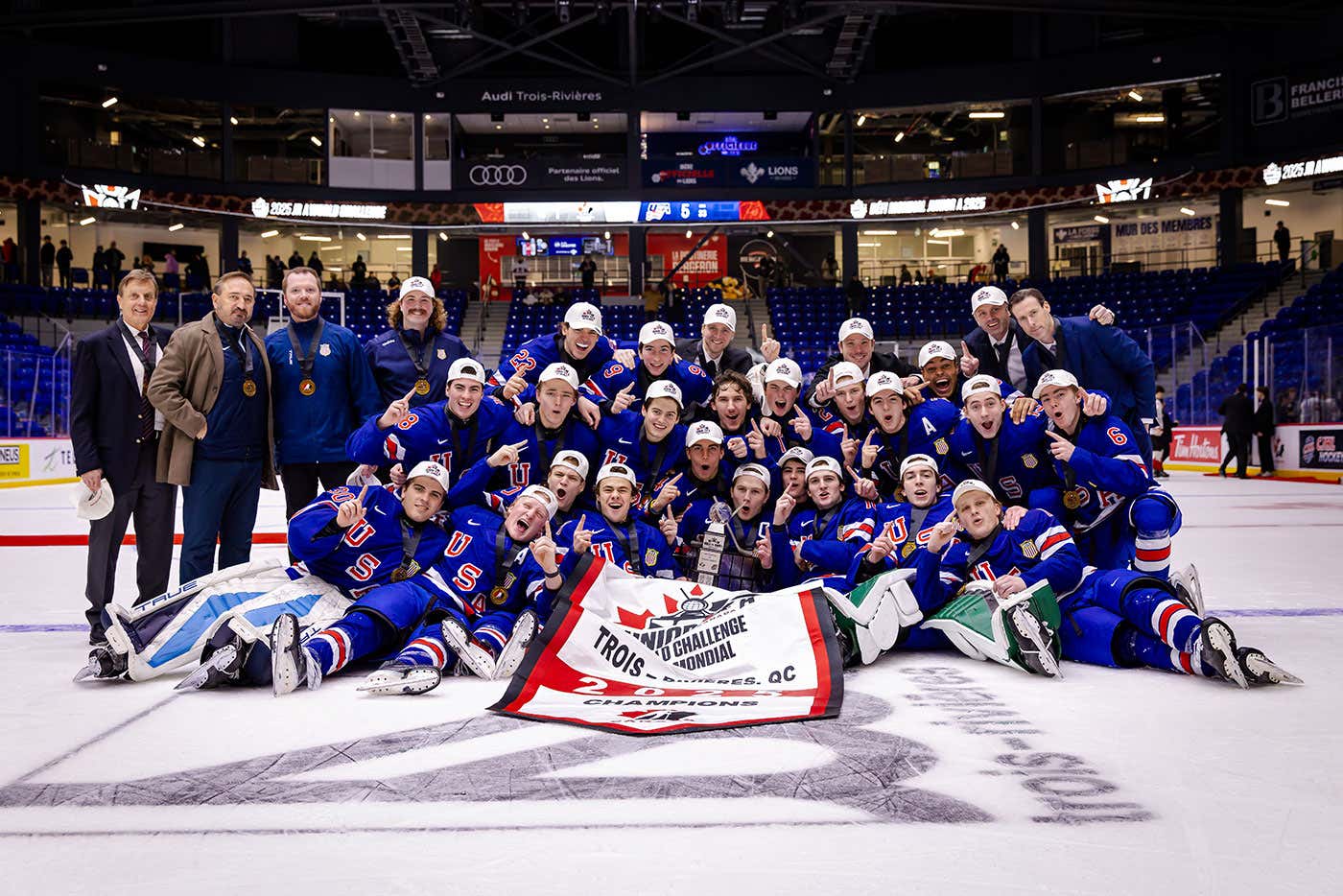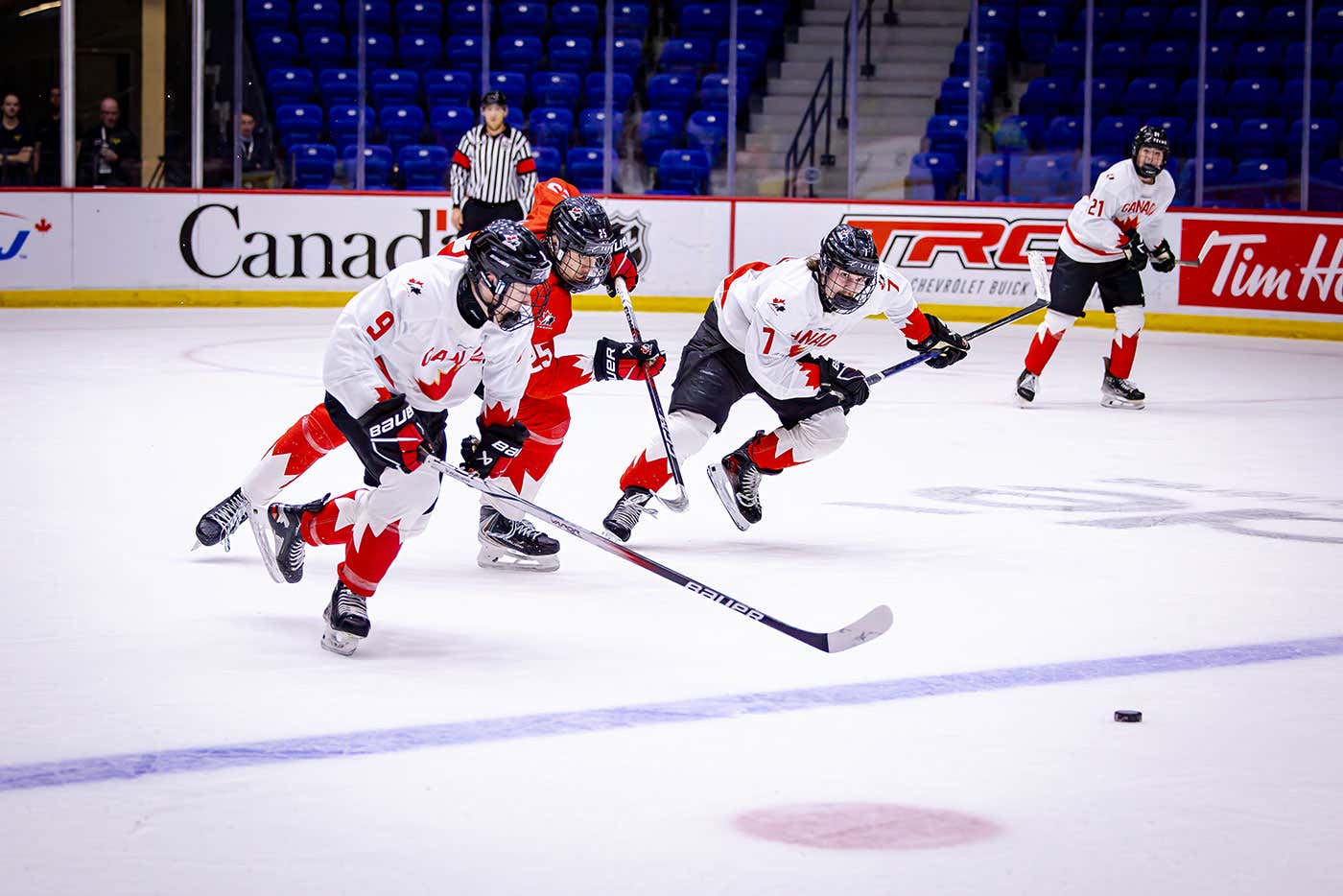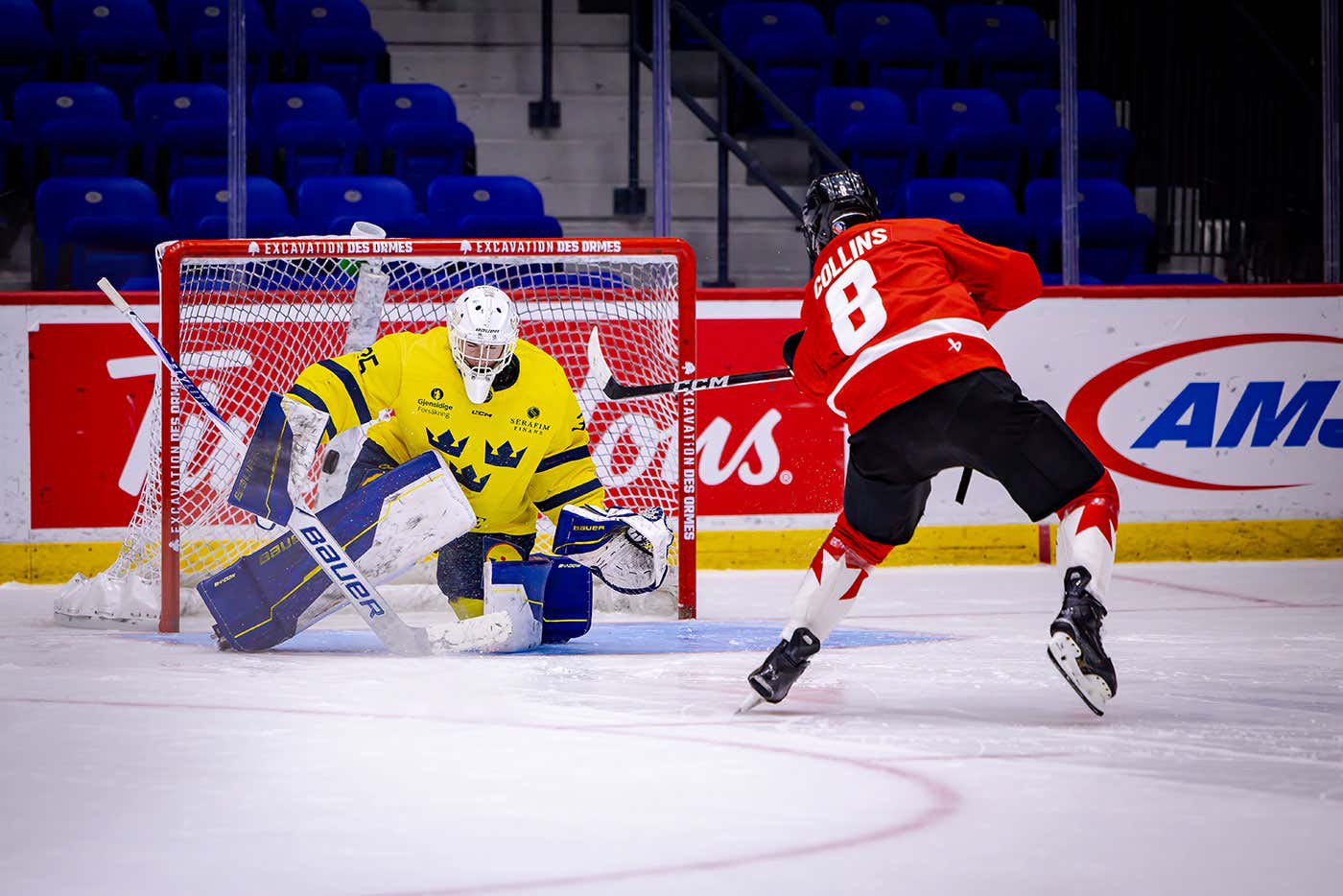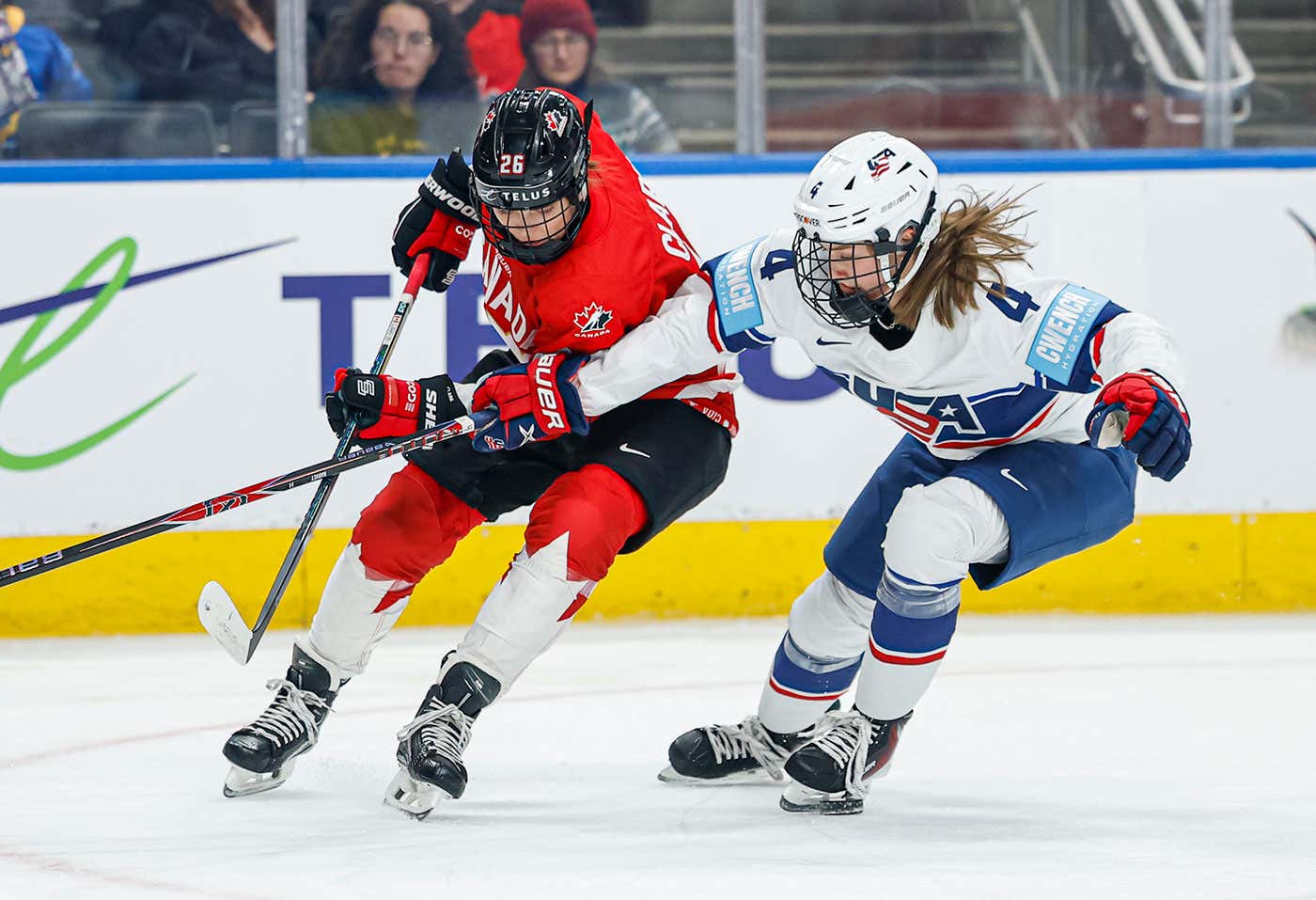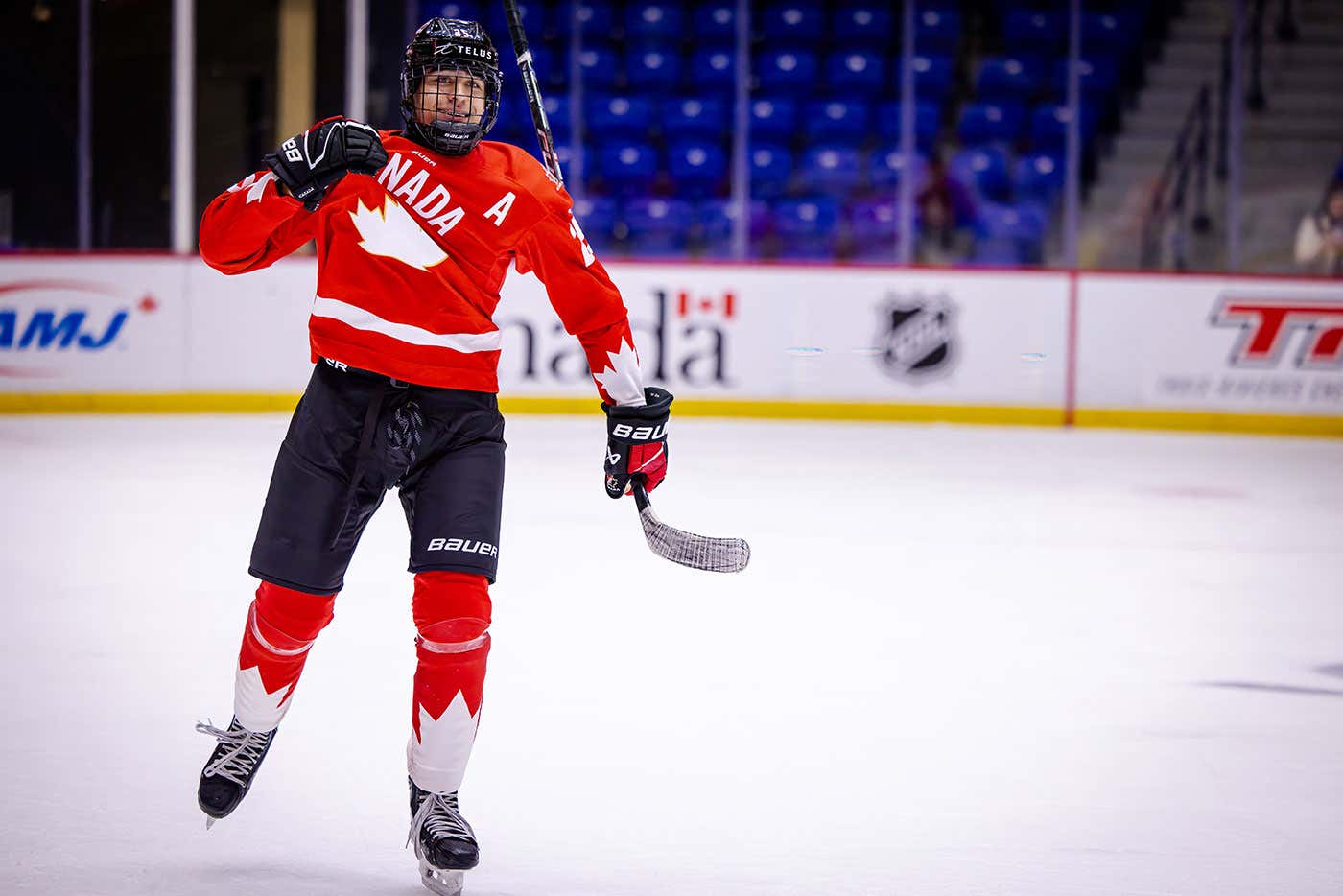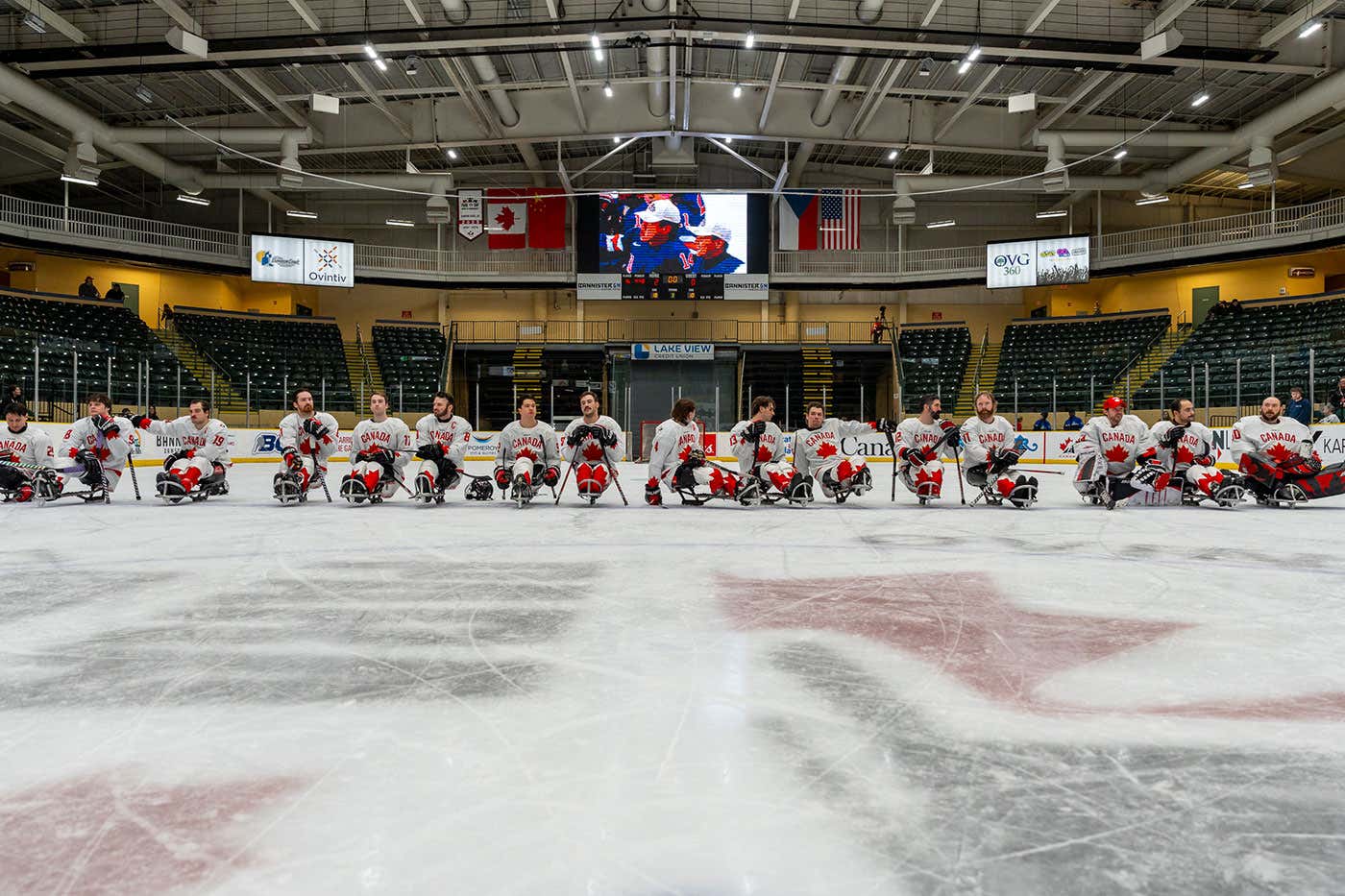
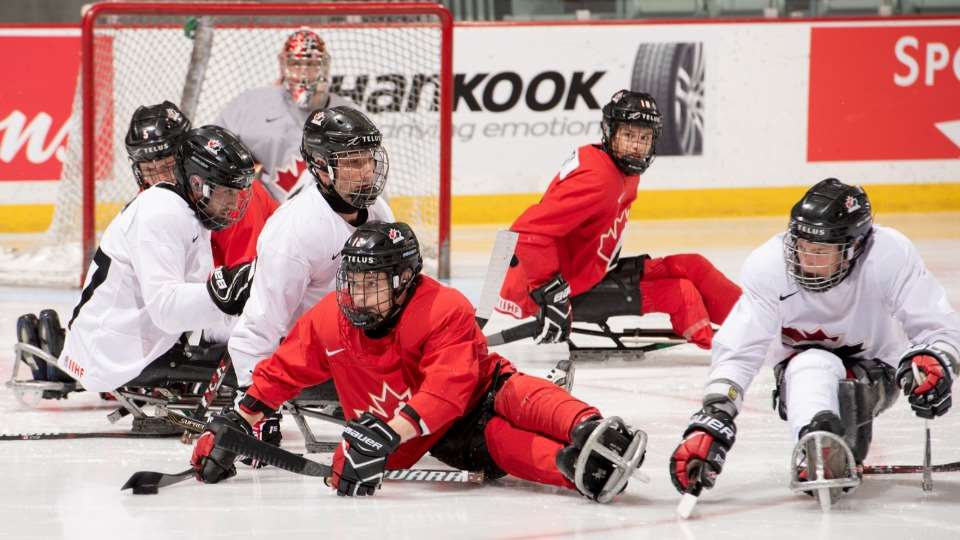
A glimpse into the future
As Canada’s National Para Hockey Team comes together for the first time in almost a year, COVID-19 challenges mean it will be a youthful group on the ice in Calgary

“I’m just starting to work on season plan D.”
Such is the life of a coach during the COVID-19 pandemic.
For Ken Babey, head coach of Canada’s National Para Hockey Team, the latest plan finally includes a little bit of on-ice action, with 14 players gathering at Hockey Canada headquarters at WinSport’s Canada Olympic Park for training camp beginning this week.
But even that will look different that Babey had originally hoped. With the challenges of travel during the pandemic and the risks that come from pre-existing health issues, a number of players have decided not to attend, leaving a roster that includes mostly up-and-comers.
The 14 players who will travel to Calgary have combined for 313 games with the national team, and 218 of those belong to captain Tyler McGregor (109) and mainstay defencemen Rob Armstrong (62) and Tyrone Henry (47).
Babey is turning the negative of not icing a full group into the positive of getting extra time to work with players that he may not typically have as much one-on-one time with during the course of a season.
“This is a good opportunity for them to show how much they've improved since we were together,” he says. “We've been away from each other for about 10 months now. They've been doing individual training on and off the ice. So we'll see how they look and we'll put them through their paces and see what their conditioning is like, and see their puck-handling skills, and we'll put them under pressure. We'll try and have some fun, too, and make a competition out of the week.”
And it’s not as if the players who won’t be in Calgary haven’t been skating.
Since the team was last together for a series against the U.S. in mid-February, Hockey Canada has facilitated the creation of hub cities across the country, allowing for groups of players to get on the ice a few times a week to keep their skills sharp.
“We're fortunate because a lot of them are grouped together, especially the Ontario guys, which is the primary make-up of our team,” Babey says. “They’re getting together three or four or five of them at a time. [It is] good for them to feel part of the team and feel connected to each other, and also challenge each other.”
Much like Troy Ryan, his coaching counterpart with Canada’s National Women’s Team, Babey has stayed virtually connected to his team throughout the pandemic, taking advantage of unexpected opportunities to work on the off-ice component of the program.
“When things happen like [the pandemic], negative things, so to speak, you have to turn them into a positive,” Babey says. “We have a great staff here and people that said, ‘Okay, what gaps could we fill when we're not together?’ So, that's the approach we took. And it's all about building our capacity.
“We've been doing weekly virtual team hockey talks, and we've been doing a leadership program. Our mental performance coach has met with [players] weekly to do individual training. As a group we've really been working together pretty much or more than we actually have in the past in some ways. And we worked a little bit on our team culture concepts. We couldn't get on the ice together so we thought, okay, we've got to get connected together and work on some things off the ice that we can maybe fix in terms of our culture as we approach the next 414 days.”
That countdown leads to the Opening Ceremony of the 2022 Paralympic Winter Games, where Team Canada will look to erase the heartbreak of 2018 – it was 38 seconds from gold in PyeongChang before settling for silver.
With the international schedule in flux for the rest of the 2020-21 season – the IPC world championship planned for the Czech Republic in May could be postponed or outright cancelled – Beijing 2022 is a shining beacon on the hockey horizon, and everything Babey does now revolves around the Paralympic plan.
That includes the next two weeks at camp, where young players will have an unexpected opportunity to showcase the progress they’ve made and prove they should be in the conversation for 2022 – and beyond.
“If they've been putting in the work, we should see they have improved,” Babey says. “So that could mean very strong depth in 2022. And then also into the next quad (the four-year Paralympic cycle). A lot of these players that are coming here could move on to the next quad, too.
“This is the future of the program, really.”
For more information: |
- <
- >

















